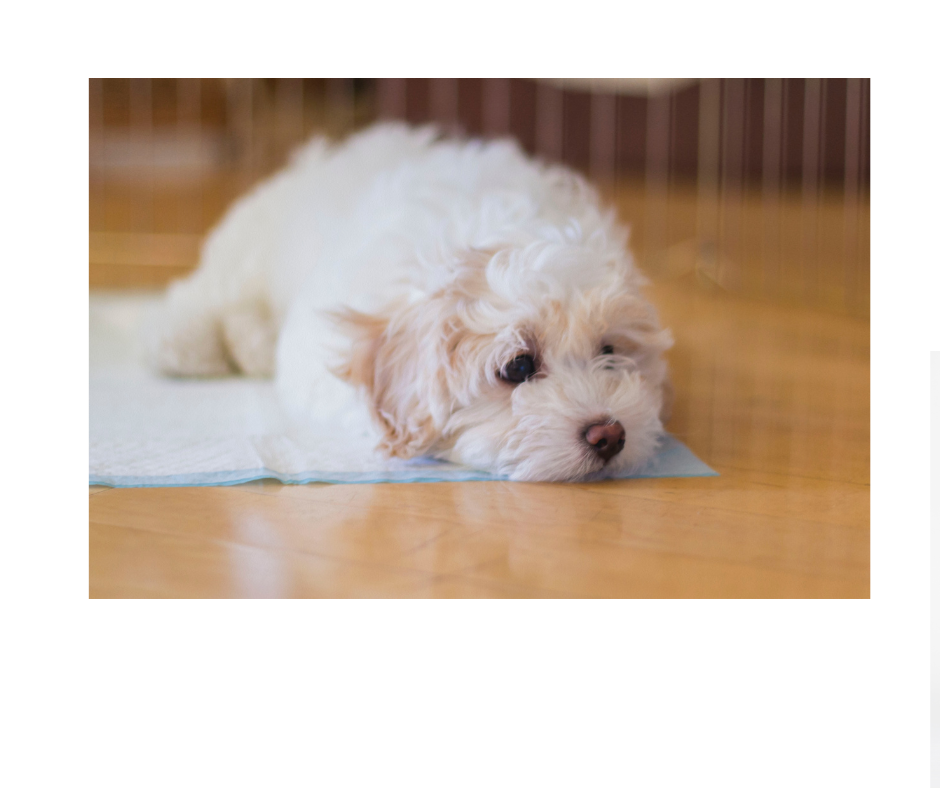Whether your puppy grows up to be a grand champion show dog, a helpful hunting partner or trusted family companion, housebreaking is the first skill they need to master.
Housebreaking a puppy is 98% prevention and 2% active training. Because so much of housebreaking relies on prevention, many dog owners fall into traps that lead to poor potty habits and a prolonged housebreaking process.
The following article dispels the top five myths about housebreaking and how to avoid them.
Common Housebreaking Myths
- My previous dog was housebroken at 12 weeks. This puppy should be too.
A truly housebroken dog will not void indoors even with a schedule change and full access to all rooms in your home. Typically, most dogs cannot meet this benchmark prior to 11 – 14 months of age.
This doesn’t mean that you should expect your dog to have “accidents” at 5 to 11 months of age. If you are inattentive they will potty in the house.
In fact, many dogs do not have any accidents after 4 months of age. Preventing accidents in mid-to-late puppyhood involves regular potty breaks, limiting access to certain areas of the house and using a crate when the puppy is unattended.
These tactics can prevent accidents during your pup’s teenage period. The absence of accidents during this period does not mean they are housebroken. It just means you are an amazing and attentive dog owner!
- “I don’t need to give my puppy a treat when they potty outside“.
Praise is often not enough to reward puppy when they potty outside. Rewarding your puppy with a treat immediately after elimination while in the potty area tells your puppy this is a VIP skill.
- My puppy should tell me when they need go to the bathroom.
This is probably the most common myth in housebreaking. To signal, a dog must be fully committed to doing its business outside. If your puppy is still having random accidents you cannot and should not rely upon your pup to tell you they need to use the bathroom.
Instead, be proactive and schedule age-appropriate potty breaks outside to prevent accidents from occurring.
- He’s just a little puppy; I have plenty of time to housebreak him.
Some owners believe they have ample time to housebreak their puppy and tolerate accidents. However, each accident reinforces the bad habit of pottying in the house. This is counterproductive if you want a well-housebroken adult dog.
Instead take a zero-accident policy from the start and recognize that housebreaking is a marathon not a sprint. Although you may feel frustrated at times your efforts will pay off.
A word of warning, there is also a point of “no return”. If a dog is still having random accidents at 11 months to a year of age, it’s unlikely they will ever be fully trustworthy. As such, all puppy owners should prioritize housebreaking efforts.
- I don’t need to crate my dog, I can just watch him
No one can watch a puppy ALL of the time. When you are not at home or are multitasking place your puppy in a crate with a special treat.
When you are at home, confine your puppy to one room, such as the kitchen. If you want your puppy to join you in another room, consider tethering them or using a playpen. Never leave a puppy alone on a tether or in a playpen.
The bladder is a muscle that needs to be strengthened. Increasing the time between potty breaks and daily crate time conditions your puppy’s bladder.
Lastly, the larger the house and the smaller the dog the harder it is to housebreak a puppy. It just takes longer as there are more potty spots available in the house.
- My dog’s bladder is too small
I hear this a lot from owners of small breed puppies. This belief prolongs that onset of active housebreaking practices by allowing owners to make excuses for not being more dedicated to the housebreaking process.
A puppy’s bladder size depends on its metabolism and waste production. Toy breed puppies produce less urine than large breed puppies. As such, toy or small breed puppy should follow the same house breaking plan as a Labrador or Great Dane
What Is the Appropriate Outside Potty Schedule for My Puppy?
- Puppies under 10 weeks should be taken outside every 45 – 60 minutes assuming restricted access in the house.
- 75 minutes for puppies under 6 months of age
- 90 minutes for dogs older than 6 months
How much time can my puppy spend in his crate at night until he needs to go potty?
- 4 -5 hours for puppies under 10 weeks of age
- 5-7 hours for puppies 12 weeks or older
- 16 weeks and older 8 hours
How long can my puppy rest in his crate during the day?
- 1 -2 hour for puppies under 10 weeks.
A good daytime schedule for young puppies is 2 hours out of the crate and 2 hours in the crate from 7 am to 6 pm. From 6:30 pm your puppy can be out of his crate until bedtime at 10:00pm.
- 4 hours at twelve weeks of age
- 5 – 6 hours at 14 weeks age. This assumes the puppy is spending quality time outside the crate with its owners and receives adequate exercise suitable for his breed and temperament.




Recent Comments